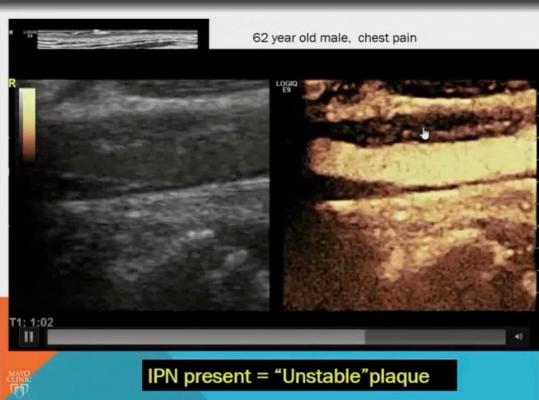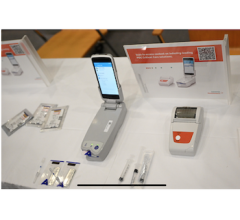
May 11, 2021 — The American Institute of Ultrasound in Medicine (AIUM) and the American Society of Echocardiography (ASE) have joined the International Contrast Ultrasound Society (ICUS) in recognizing the relatively low risk and important clinical benefits of ultrasound contrast agents (UCAs), which are used routinely around the world to help detect heart disease, stratify the risk of heart attack or stroke, identify and characterize tumors throughout the abdomen, and monitor the effectiveness of cancer therapies in adults and children.
All three medical societies issued statements reacting to a recent communication from the Food and Drug Administration “stakeholder engagement staff” citing 13 suspected adverse reactions to polyethylene glycol (PEG), an inactive ingredient in two UCAs, without mentioning that reactions to UCAs are extremely rare and the 13 cases at issue were drawn from historical data representing millions of doses of UCAs administered over more than a decade.
In addition, there was no apparent confirmation or data to show whether the 13 suspected reactions were caused by other conditions or exposures.
Noting that UCAs “provide very substantial benefits to our patients” the AIUM statement recommends no change to clinical policy regarding use of UCAs other than asking patients if they have a PEG allergy.
“Reactions to PEG, although extremely rare, need to be considered alongside the clear benefits of contrast-enhanced ultrasound (CEUS),” the AIUM statement said.
The ASE Expert Consensus Statement similarly concluded: “The FDA alert does not contain any information that would justify changes in laboratory policy for patient monitoring or treatment algorithms for hypersensitivity reactions,” but recommended asking patients if they are allergic to PEG.
“The FDA letter did not disclose a new risk, it just identified a specific type of risk that was already contemplated in product labels,” said Richard Barr, M.D., an ICUS board member, radiologist in Youngstown Ohio and CEUS expert. Dr. Barr also is editor-in-chief of the Journal of Ultrasound in Medicine. “UCA product labels have long warned against use in small numbers of patients with sensitivities to any product components,” he added.
UCAs (sometimes also known as “ultrasound enhancing agents”) are radiation-free imaging agents that enhance conventional ultrasound scans, often producing images with higher resolution than more expensive imaging options such as computed tomography (CT) or magnetic resonance imaging (MRI) — which present their own risks, according ICUS, a grassroots medical society with members in 60 countries.
In addition, a reliable CEUS scan may reduce the need for downstream tests, which in turn can lower overall imaging costs, expedite the patient’s diagnosis and treatment, and improve hospital workflows, according to the AIUM statement.
PEG is found in thousands of drugs including over the counter laxatives and bowel preps, skin creams, cosmetics and household products, according to the AIUM.
“UCAs are extremely safe and beneficial for the overwhelming number of our patients,” said Michael Main, M.D., Vice President of ICUS and co-executive medical director of Saint Luke’s Mid America Heart Institute in Kansas City. Main is the senior author of numerous UCA safety studies and co-authored the ASE statement.
“We use UCAs day in and day out to image soft tissue tumors of the abdomen and pelvis, providing a very safe, low-cost, versatile and reliable imaging option for our patients,” said Stephanie Wilson, M.D., Co-President of ICUS and expert in the use of CEUS for general imaging.
PEG is an inactive ingredient in Definity (Lantheus Medical Imaging) and Lumason (Bracco), and their product labels were recently updated to highlight PEG risk. A third UCA, Optison (GE Healthcare), does not contain PEG.
For more information: www.ICUS-SOCIETY.org


 February 05, 2026
February 05, 2026 









